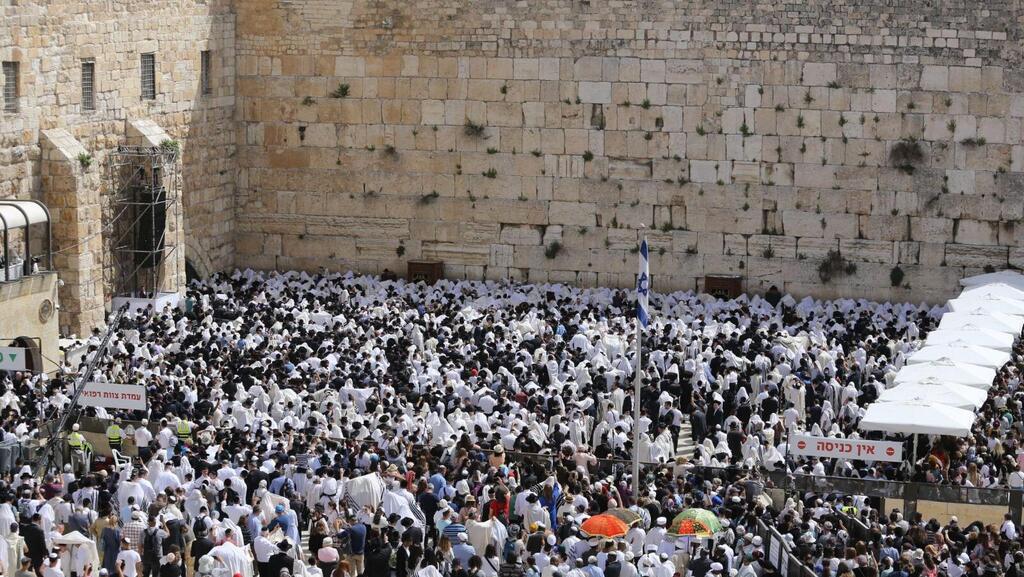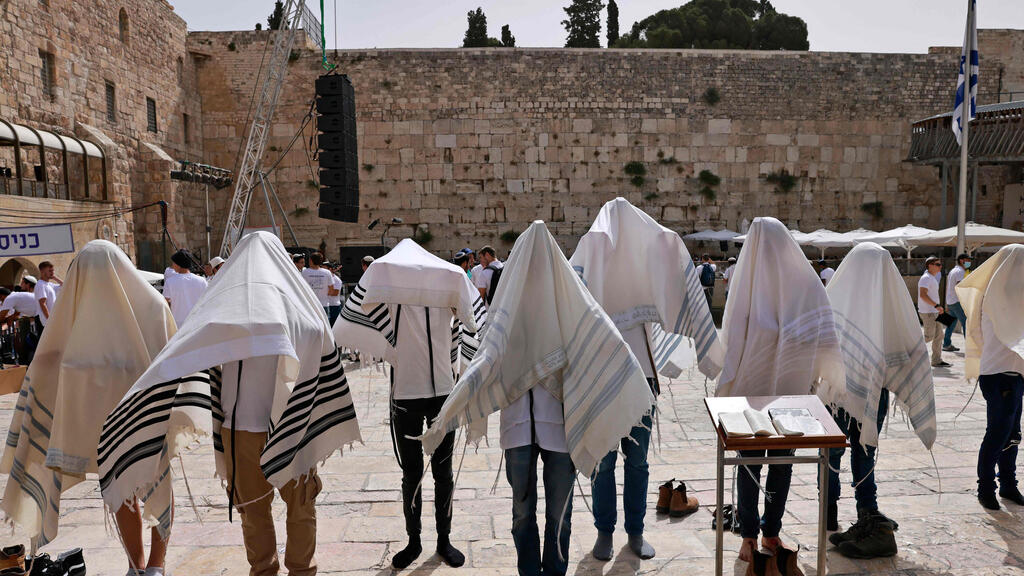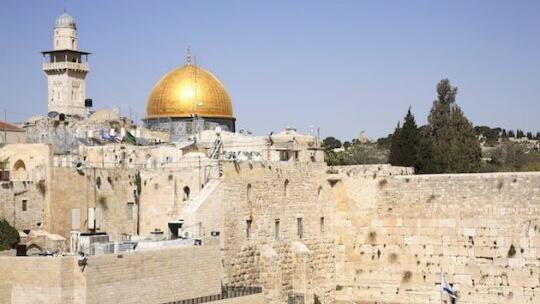The verses of the Bible convey an ancient majesty of words carved in time that speak to us from the dawn of our first days as a people. But there are times when the verses seem to have been written specifically to us and passed down from generation to generation until they reach the generation for which and about which they were written. Such are, to me, the words of King David in Psalm 122.
More Stories:
Black-and-white photographs remind us of Jerusalem in ruins. The plumes of smoke rising above the Hurva and Tiferet Yisrael synagogues. The frightened girl fleeing the Jewish Quarter in flames. The Jordanian Legion fighters standing proudly above the rubble that just a moment ago were houses full of life. But before our eyes today, we see a different Jerusalem. Jerusalem, which King David describes as if he was standing in front of its walls with us today: "Our feet were standing within your gates, O Jerusalem. The built-up Jerusalem is like a city that was joined together within itself."
3 View gallery


Thousands at Birkat Kohanim at the Western Wall
(Photo: Western Wall Heritage Foundation)
Old Jerusalem and New Jerusalem, the ancient stones of the Western Wall, and the steel and glass structures of the advanced industrial zones – a single, united city that tells a wonderful story of three thousand years of constant striving for a connection between heaven and earth. A city whose well-being and security are deeply and inextricably linked to its values and spirituality. A city like no other in the world.
From the first days after the reunification of Jerusalem, the Western Wall Plaza at the foot of the Temple Mount has not been quiet for a single moment. Worshippers, students, soldiers, tourists, archaeologists, ushers, and construction and development teams all fill the plaza at all hours of the day and night. If you ask each and every one of them what they are seeking at the Western Wall, they will all give the same answer – "roots." The Western Wall is not a place of stones, but a place of hearts. So it was and so it will be. A place to which the eyes of the entire Jewish people are drawn, and which connects them all in deep, hidden, and eternal ways.
3 View gallery


Jewish men pray near the Western Wall in the Old City of Jerusalem as Israel marks Jerusalem Day, May 10, 2021
(Photo: AFP)
Jerusalem is not an asset, but a call. A city that does not belong to any of the tribes of Israel, but to all of them together, and perhaps it would be more correct to say that all the tribes of Israel belong to it. Jerusalem demands that we transcend ourselves and create an exemplary life, a model and an example for the entire world.
Indeed, since it was reunited in the Six-Day War, Jerusalem has been a global model of tolerance and coexistence among religions. Every single day, tens of thousands of visitors, pilgrims, and worshippers of all faiths arrive in Jerusalem, and the Old City in particular. Praying side by side and requesting the welfare of Jerusalem.
A few weeks ago, in Jerusalem, we marked the Jewish Passover, alongside Muslim Ramadan and Christian Easter, with peace and solidarity. The ancient alleys of the city were filled with tens of thousands of excited believers from all three religions from all over the world. The world, as usual, is preoccupied with the few and unfortunate extreme events in which the pride of those who claim to be believers trumps the humility that faith requires. But anyone who comes to Jerusalem and sees the tens of thousands of people living side by side, working side by side, and praying side by side, knows that Jerusalem, as its Hebrew name implies, is a city of peace.
David concludes the prophetic psalm with the prayer, "May there be peace in your wall, tranquility in your palaces. For the sake of my brethren and my companions, I shall now speak of peace in you. For the sake of the house of the Lord our God, I shall beg for goodness for you." We too join this prayer for ourselves, for our brothers and sisters, and for Jerusalem, our holy city and our glory.
Happy Jerusalem Day!
Rabbi Shmuel Rabinowitz is Rabbi of the Western Wall and Holy Sites


